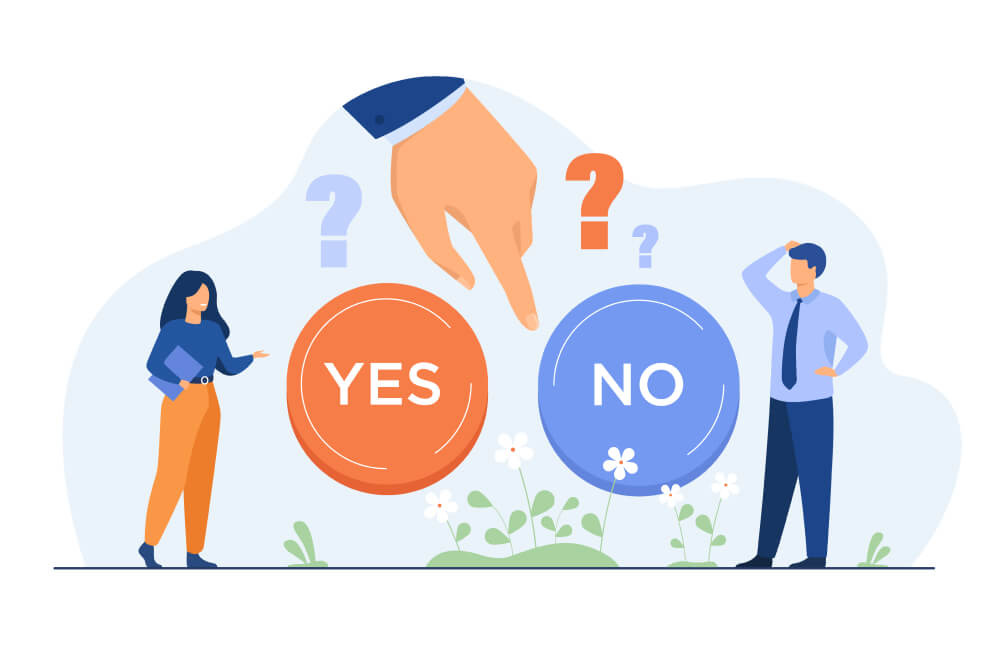Substitution Bias or why we often answer a different question from the one we have been asked.
We can often quickly answer a question that we shouldn't know the answer to? It appears that we substitute the more difficult question with an easier one. Let us look at how and why?
If we are honest, there are just some questions that we don't know the answer to, but we have a go anyway. Of course, we can guess an answer, but we probably know we are doing that, and that's not what I am talking about here. I want to focus on when you think you are answering a question, but not on reflection.
Let's take this question: is climate change real?
You probably have an answer to this question, and it was perhaps YES or NO. Either way, can you prove your answer? Except for a tiny group of people, the answer is probably NO.
What is going on here is an Attribute Substitution, or as it is also called a substitution bias.
What is the Attribute Substitution?
As discussed before, many psychological processes or heuristics act as cognitive biases. They are shortcuts or past paths that allow us to quickly deal with things that would bring our day to a halt if we had to stop and think about it. But what happens when you don't have an answer to the question?
Well, one of the things we do is substitute the question with another similar question we can answer. That second question will probably be much less complicated and easier to answer.
So, the question
"Do you believe in Climate Change"
is probably substituted with the question,
"Do you trust the people who say climate change is real?"
Climate Change is a complex subject full of data and analysis. Given this complexity, answering the first question 'accurately' is very hard to do. Therefore, most of us, at speed, tend to substitute the second question and answer that. Easy to do but worth considering that they are not the same question.
One way to test if you hear the substitute question is to follow up with a more profound question. In the case of climate change, it might be, "what evidence do you use to support that answer." Some people will be able to quote data and analysis, but most use, if honest, either repeat data we probably can't source (e.g. "99% of all scientists agree") or become frustrated by the question. That frustration shows as "it's been decided" or "everyone knows."
All of this makes sense in our busy world, so why does it matter?
Knowing the difference
In most cases, it probably doesn't matter. A quick answer suffices, and we move on with our lives. If someone stops us in the street to ask us the climate change question, maybe for a survey, the substitution cost is probably zero. Question asked and answered. Let's move on with our lives.
Yet, there are times when knowing you are substituting may be necessary.
The first case where this is important is when you are trying to understand what you believe and why. Assuming we want to learn, then knowing when you are making a substitution should make you less sure of your answer and you should be more open to listening (and learning). Of course, it may be a subject you don't care about, and then you can convince yourself the substitution is acceptable.
Secondly, once you accept that you are answering the substitute, other biases or influences start to impact. In the case of climate change, if you substitute with 'people I believe,' then the question is who do you believe and why? What is their source of data? All their cognitive biases now imply what you think.
Lastly, there are those people who want to convince you of something for personal or political reasons. The chances are these people want power or influence and will use your substitutes against you. Managing these people is another subject but be aware of them using substitutes against you!
Answer the questions you are asked
While there may be many cases where you don't care, there is enormous power in understanding how you answer a question and when you are substituting. It is also a valuable technique to ask follow-up questions to gain increased insight. While some people may use this power to influence or embarrass, we know that great powers come with great responsibilities, and we trust you to use them wisely.
There will be some that do not want to understand this and ignore it. For them, the truth of the biases is too hard to accept, and they would rather just keep going believing what they believe. Or at least, believing the story that they are telling themselves




